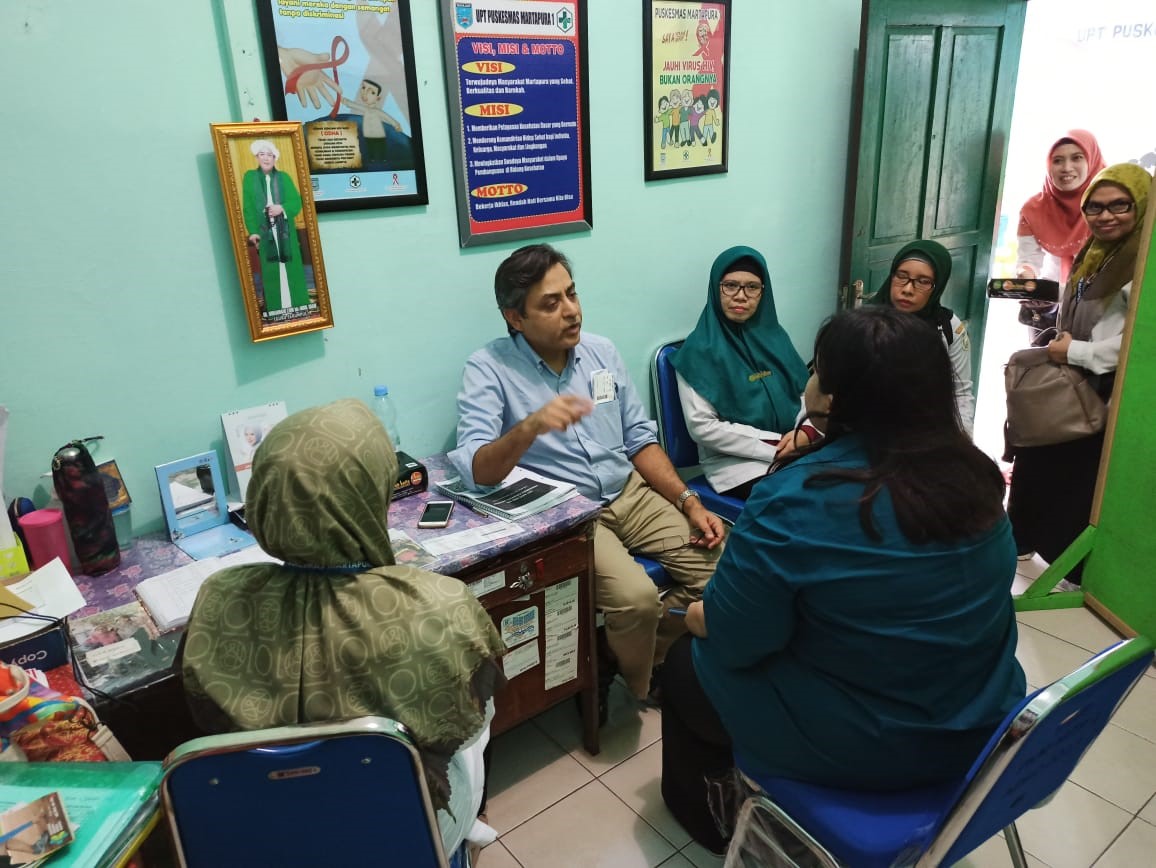An HIV programme review to evaluate progress and performance of the Indonesian national HIV/AIDS programme was conducted from 20-30 January 2020. The review constitutes an important part of the programme as it provides specific recommendations to improve national HIV programme performance and to achieve the UNAIDS 90-90-90 target in 2030.
The UNAIDS 90-90-90 is a three-part HIV treatment target. It focuses on achieving the following: 90% of all people living with HIV (PLHIV) will know their HIV status, 90% will receive sustained antiretroviral therapy, and 90% of people receiving treatment will have viral suppression.
The review team, consisting of three independent experts and six WHO employees, went on field missions to Aceh, North Sumatera, Papua, Bali, South Sulawesi, DKI Jakarta, South Kalimantan, Banten, and Maluku. It was concluded that Indonesia has seen progress over the past three years, including the publication of HIV-related guidance; the commitment to eliminate mother-to-child transmission (EMTCT) of HIV, syphilis, and hepatitis B; and developing a health information system capable of providing real-time tracking of achievements in HIV programmes. In addition, the country has a solid network of local civil society organisations involved in the provision of HIV services.

Caption: The reviewers and Puskesmas staff discussing the progress of the HIV/AIDS programme during a field visit in South Kalimantan. Photo credit: Steward Anwar/WHO Indonesia
At the end of the review, the team made a number of recommendations, with the key ones being:
- Convene a process to set annual district/city and provincial targets for each HIV test, treat, and viral suppression (90-90-90) to fully achieve national goals by 31 December 2027
- Integrate essential HIV and STI services and commodities into health benefit (universal health coverage) packages
- Adapt WHO guidelines on comprehensive HIV services for key populations, for implementation in all provinces
- Improve linkages between HIV testing and treatment
- Explore diversifying HIV testing services, including a mix of WHO recommended approaches
- Promote active involvement and support of private health care providers and professional associations
- Optimize ARV treatment
- Evolve an overarching ‘National Strategic Information Policy, Framework & Roadmap’ enshrining the principle of Three Ones (One national monitoring authority, One M&E system, One monitoring framework), as a foundation for a strong, evidence-based, knowledge-driven HIV programming in Indonesia
Main image: The review team discusses HIV strategic information for the National HIV/AIDS programme. Photo credit: WHO Indonesia
